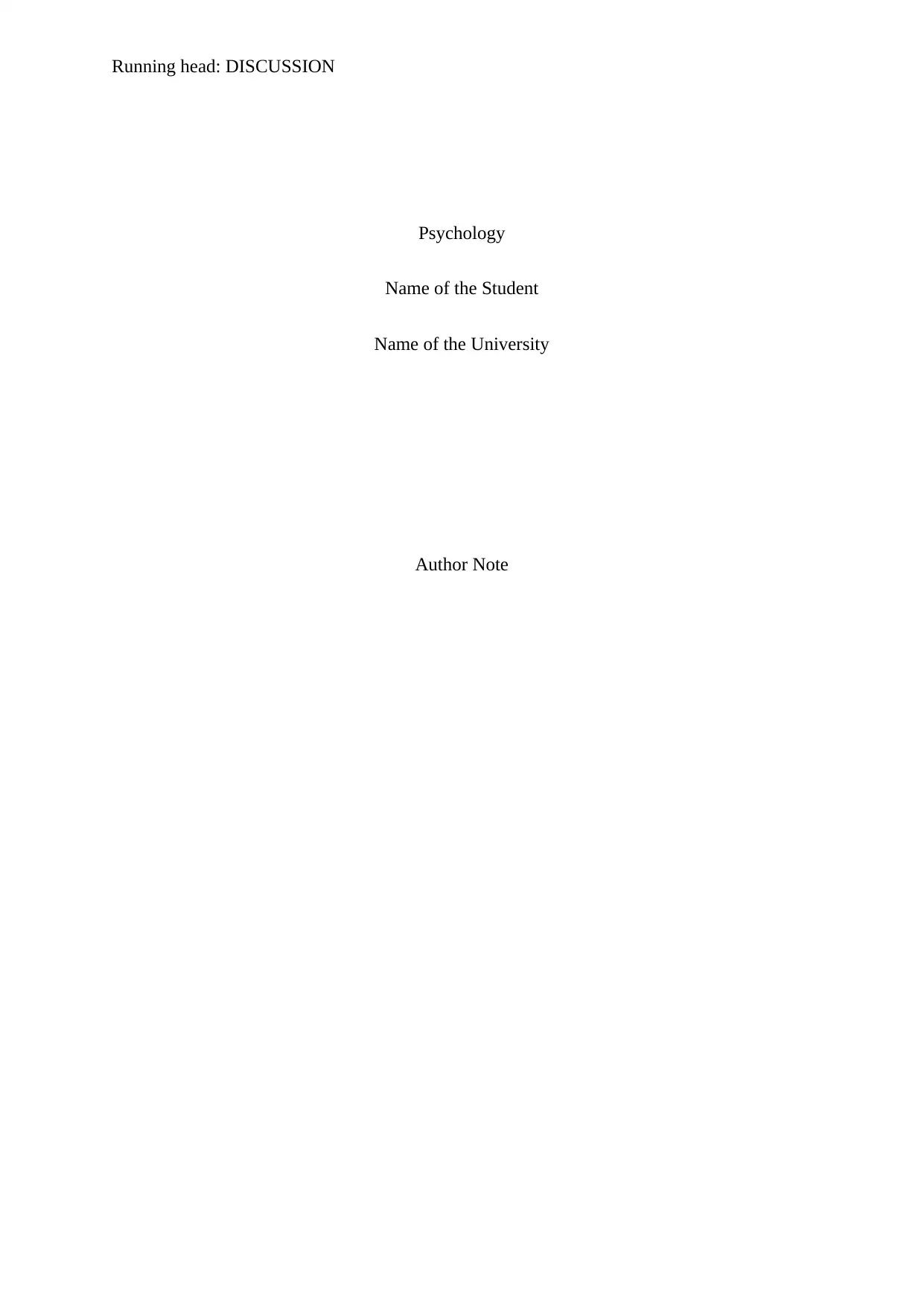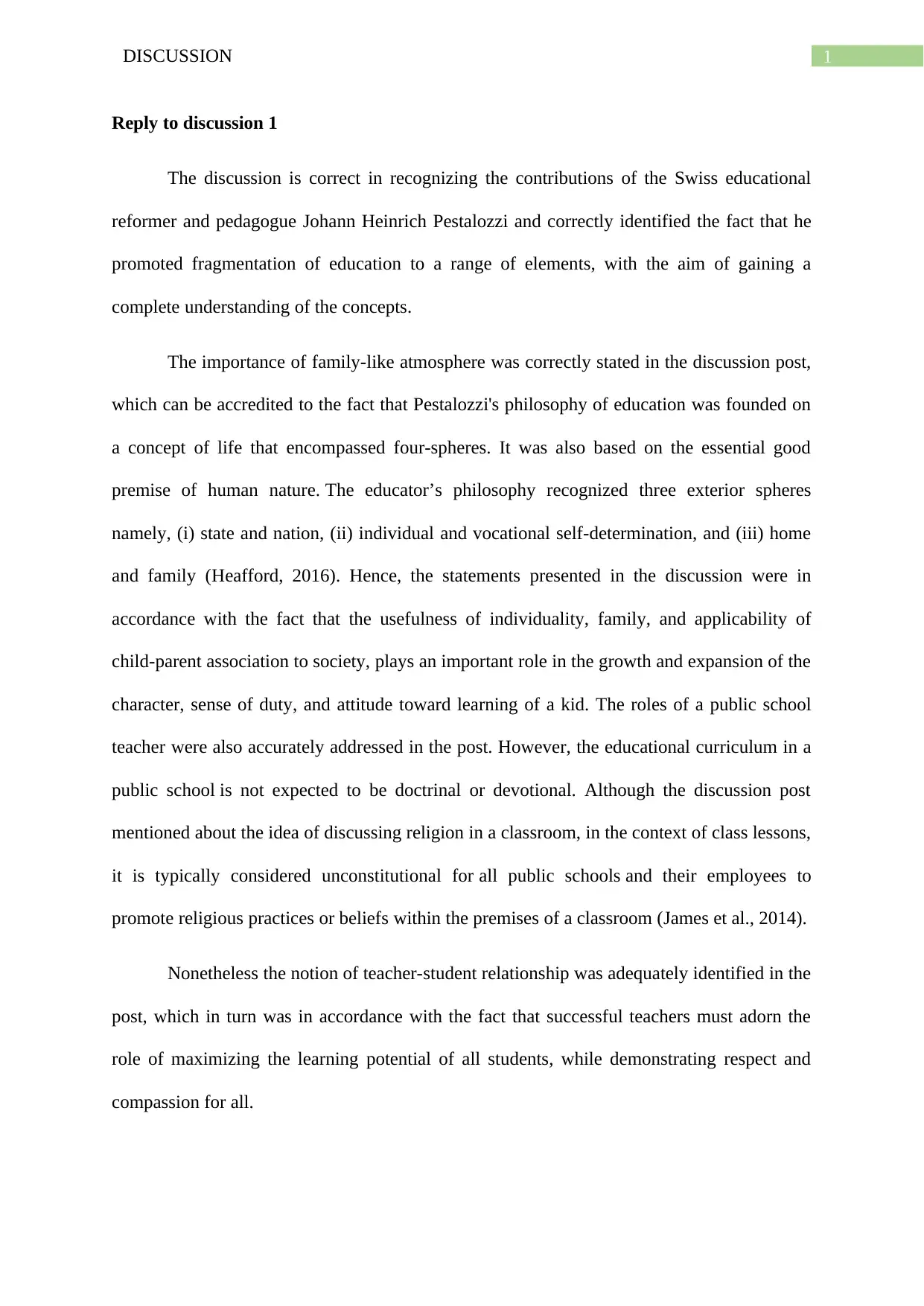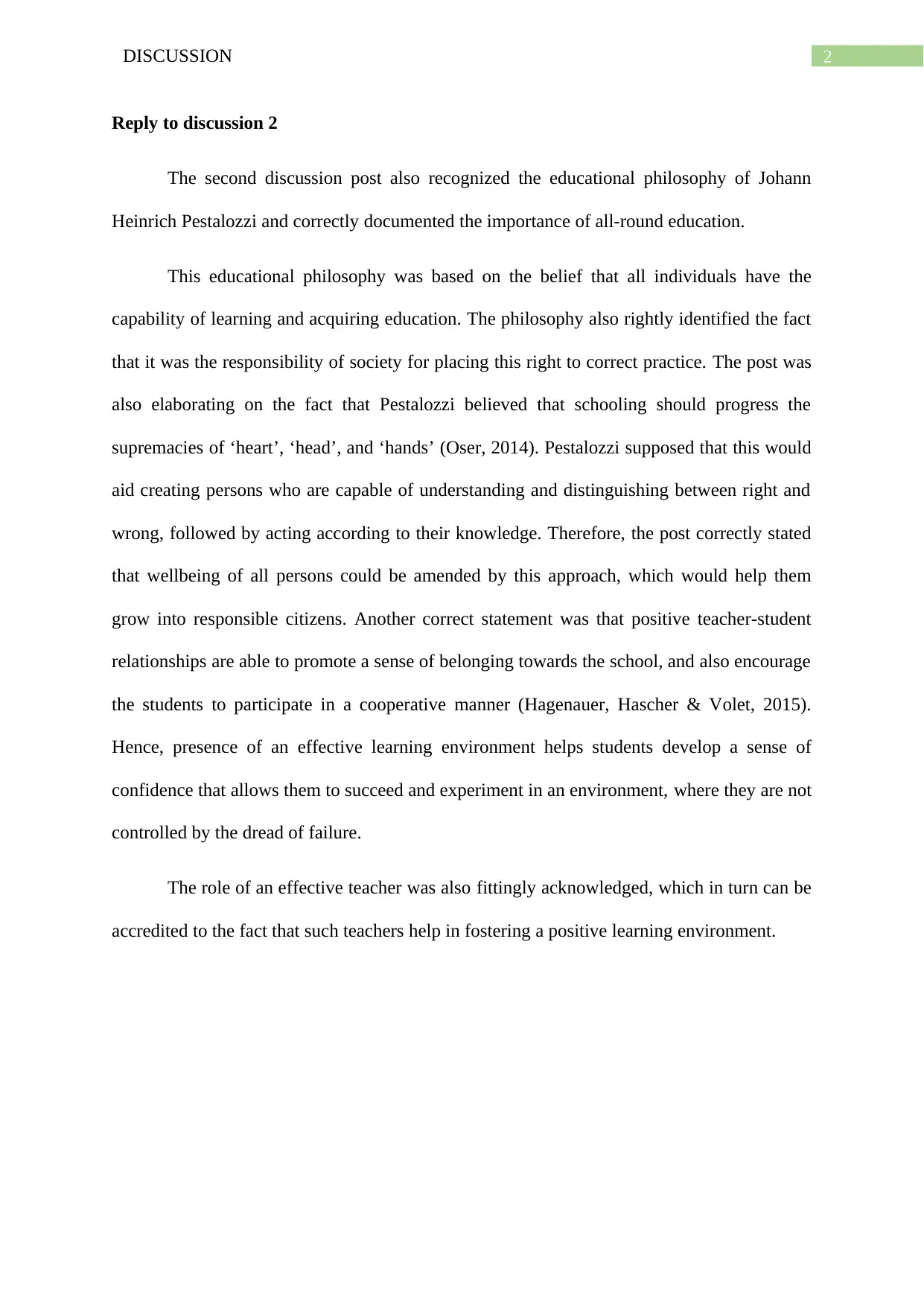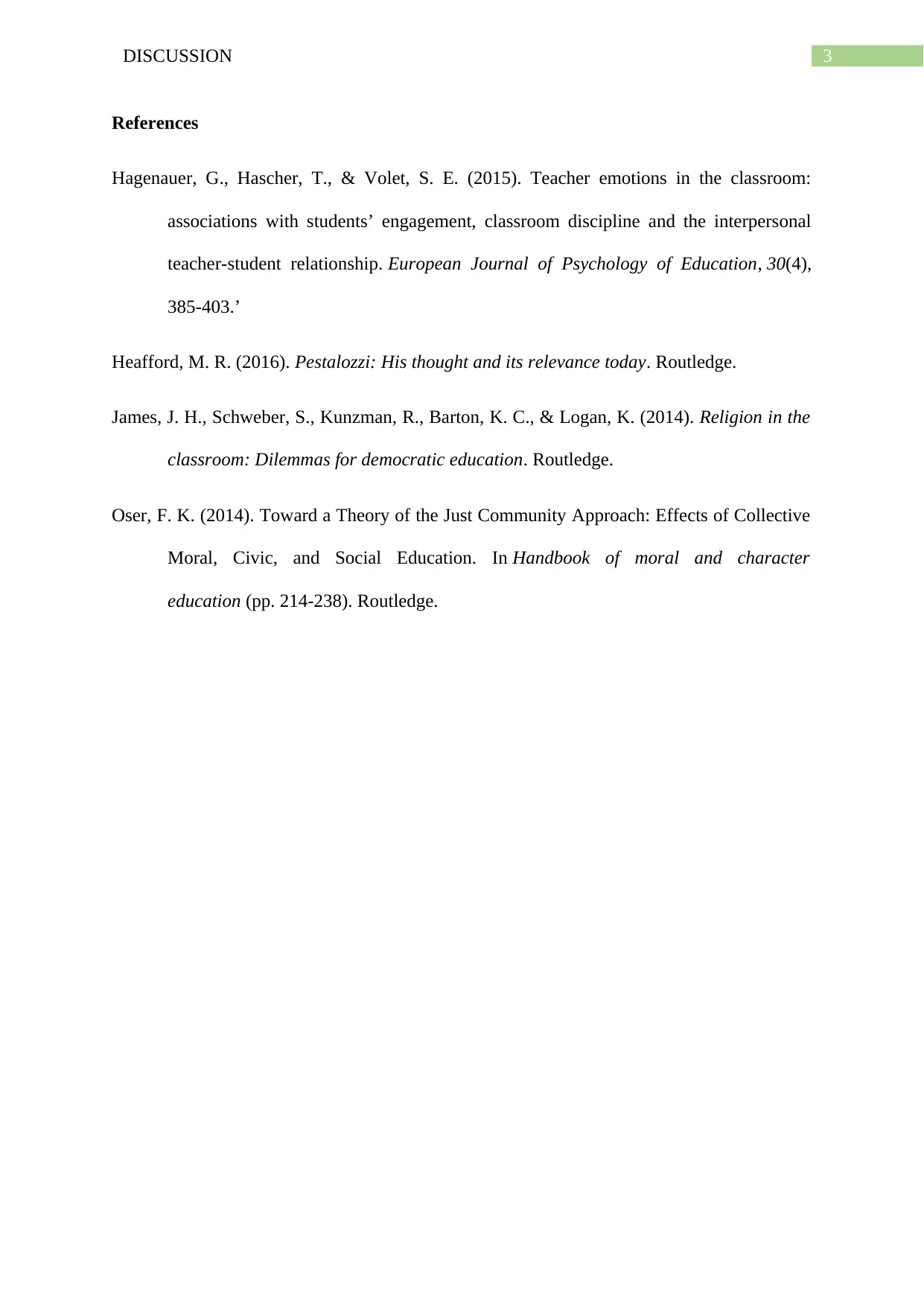Psychology Discussion: Analysis of Pestalozzi's Educational Theories
VerifiedAdded on 2023/04/22
|4
|769
|369
Discussion Board Post
AI Summary
This assignment features a student's discussion post analyzing Johann Heinrich Pestalozzi's educational philosophy. The post correctly identifies Pestalozzi's contributions, emphasizing the importance of a family-like atmosphere, the roles of individuality, family, and the applicability of child-parent association to society. It also addresses the role of public school teachers and the significance of teacher-student relationships. The discussion further elaborates on Pestalozzi's belief in all-round education, focusing on the development of 'heart,' 'head,' and 'hands' to create responsible citizens. The post references the importance of positive teacher-student relationships in fostering a sense of belonging and encouraging cooperative participation. The assignment concludes by highlighting the role of effective teachers in creating a positive learning environment.
1 out of 4











![[object Object]](/_next/static/media/star-bottom.7253800d.svg)